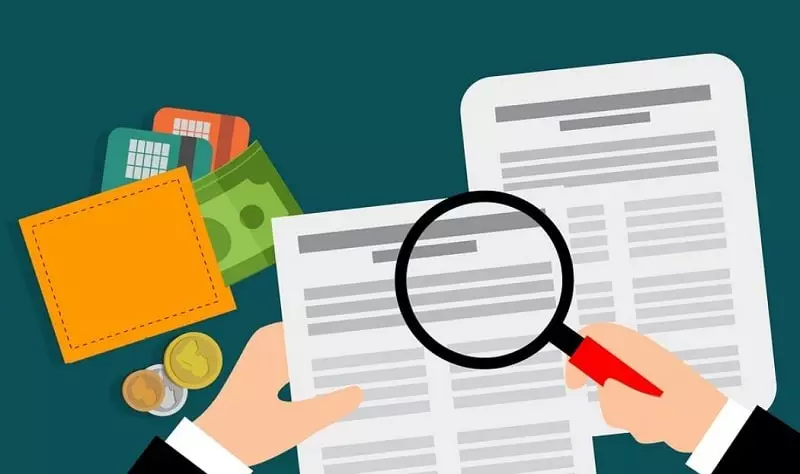How to Stop Spam Calls and Block Them
Table of Contents
- By David Lukic
- Published: Feb 03, 2021
- Last Updated: Mar 18, 2022
Back in the days of the landline, we had only the option of answering the phone to find out who was on the other end of the line. That was, of course, before spam calls and caller ID, that helps you to screen your calls better. Now even our mobile devices receive spam calls all day long. According to USA Today, about 50% of all phone calls received are robocalls. Spam calls total about 26.3 billion calls per year! Don’t worry, though; there are things you can do to stop spam calls.
The FTC says they get more complaints about harassing spam calls than any other issue. Illegal spammers do not respect the “Do Not Call Registry”. Therefore, your only defense is to take other actions like the tips below.
Do Not Call Registry
Even though spammers do not respect your inclusion on the Do Not Call Registry list, legitimate telemarketers have to. So, it’s a good idea to put your name on there just in case. You can visit donotcall.gov and add your landline or mobile number. Another way to get on the list is to call 1-888-382-1222. It can take up to 30 days for the list to be updated with your information.

How To Block Spam Calls Manually & Automatically
Whenever you get a recorded message from spammers, you can use your phone to block the calls manually. On an iPhone, go to Phone > Recents and then tap the Info button next to the caller you want to block. Tap Block this Caller and then tap Block Contact. Although effective, many spammers use automated dialers that cycle through dozens of phone numbers, so this may not be a permanent fix.
iOS 13 ships with a new feature called Silence Unknown Callers. To activate this feature, go to Settings > Phone and use the toggle switch to turn on Silence Unknown Callers.
To block calls on an Android phone, go to Phone > Recent Calls. Tap on the number that called you and look for and tap the Block or Report as Spam item. Confirm you want to block that number.
Android also has a feature to block unknown callers. Go to Settings > Block Unknown Callers. Turn the feature on.
Use Phone Carrier Services
Per changes in the law, the FCC now allows phone carriers to block some robocalls on your behalf, without even telling you. The top wireless carriers use a new technology termed SHAKEN/STIR. However, even though they don’t need your permission to block your robocalls, you can contact your carrier to opt-out of it. Phone carriers like AT&T, Sprint, T-Mobile, and Verizon also have tools that you can use to eliminate spam calls. Most of these are paid services where you will be charged a monthly fee.
AT&T Call Protect
AT&T has a service called Call Protect, where they provide directions for blocking calls on iOS and Android. They also provide fraud and spam call blocking apps for both platforms. The basic plan is free for AT&T customers, but they offer a premium plan with enhanced Caller ID and Reverse Number Lookup features for $3.99 a month.
Verizon
Verizon offers a paid call blocking solution called Call Filter for $2.99 per month, per line. However, in March of 2019, they also rolled out a watered-down, free version for their customers. Using this service, they will automatically block more than 300 phone numbers that are known to be spam callers. You can download the app from the App Store or Google Play Store.
T-Mobile
T-Mobile has a similar service called Scam ID and Scam Block. This service is free to all T-Mobile postpaid and Metro by T-Mobile customers. However, for $4 per month, they throw in a Name ID feature, which shows you the person’s name and location. It will also block calls and send specific calls directly to voicemail.
Sprint
For free, Sprint offers its customers a My Sprint app, which blocks some spam calls. Then for $2.99 per month, you can get their Premium Caller ID app and service which blocks unknown numbers and more.
Third-Party Caller Blocking Apps
If the built-in phone tools and free services with your carrier aren’t cutting it, there are some pretty slick third-party apps that block calls very effectively. Some of the best are:
Nomorobo
A popular call blocking app is called Nomorobo, which either sends the call to voicemail or allows it through while alerting you that it is spam. Nomorobo uses an extensive blacklist of numbers to filter out unwanted calls. Additionally, their service provides ad blocking on the web, blocks unwanted text messages, and helps you to report spam calls. It costs $1.99 per month, but you get a free trial for two weeks before purchasing.
Hiya Caller ID and Block
The Hiya Caller ID and Block app targets phone scammers with a history of fraud and illegal activities. Using an extensive database of known spam phone numbers, it blocks numerous callers, including telemarketers. This app even identifies spoofed phone numbers. If you type a phone number into the app, it will identify the owner and tell you if it is a spam caller. They have a basic, free version, but the premium version is more feature-rich and costs $3.99 per month with a 7-day trial.
RoboKiller
If you are sick to death of spam calls, then you might want to try RoboKiller. Not only does it block spam calls, but also, using a robotic pre-recorded message answers the call and frustrates the caller with nonsense. You can also pre-record your own messages to mess with spammers. For Android users, the cost is $2.99 per month, but for iOS users, it costs $3.99 per month. Both offer a one-week trial before buying.
Truecaller
Truecaller blocks both phone calls and text messages by identifying the number and matching it against a blacklist of numbers. You can manually add phone numbers to block calls as well automatically. You can look up numbers through the app to identify the caller and even make calls to friends and family from inside the app. Truecaller has a basic free version, but you have to put up with ads. The paid version costs $2.99 per month, with the ads removed.
YouMail Voicemail and Spam Blocker
YouMail Voicemail and Spam Blocker goes a step further and not only blocks robocalls and spammers but also includes visual voicemail so you can read the message the caller left. You can set YouMail as your default voicemail app on your phone instead of the built-in option. They offer a free version, but it includes ads. The Plus Plan removes the ads and costs $3.99 per month but also gives you unlimited space in your voicemail mailbox. There is also a Premium Plan, which ads a custom outbound greeting, voicemail menus, and three virtual numbers. The Premium Plan comes with a hefty price tag of $10.99 per month.

Report Spam Calls to the FTC
The FTC urges citizens to report spam calls and help them fight this epidemic of nuisance and fraud. You can contact them via the web at ftc.gov/complaint or call them at 1-888-382-1222. Be sure to have the spammer’s phone number handy when you call.
How to Avoid Spam Callers Scams
Additionally, the FTC offers the following advice to stay safe and protect yourself against fraud or illegal scams resulting from these types of calls.
- “Don’t answer calls from unknown numbers. If you answer such a call, hang up immediately.
- You may not be able to tell right away if an incoming call is spoofed. Be aware: Caller ID showing a “local” number does not necessarily mean it is a local caller.
- If you answer the phone and the caller - or a recording - asks you to hit a button to stop getting the calls, you should just hang up. Scammers often use this trick to identify potential targets.
- Do not respond to any questions, especially those that can be answered with “Yes.”
- Never give out personal information such as account numbers, Social Security numbers, mother’s maiden names, passwords or other identifying information in response to unexpected calls or if you are at all suspicious.
- If you get an inquiry from someone who says they represent a company or a government agency, hang up and call the phone number on your account statement, in the phone book, or on the company’s or government agency’s website to verify the authenticity of the request. You will usually get a written statement in the mail before you get a phone call from a legitimate source, particularly if the caller is asking for a payment.
- Use caution if you are being pressured for information immediately.
- If you have a voice mail account with your phone service, be sure to set a password for it. Some voicemail services are present to allow access if you call in from your own phone number. A hacker could spoof your home phone number and gain access to your voicemail if you do not set a password.
- Talk to your phone company about call blocking tools they may have and check into apps that you can download to your mobile device to block unwanted calls.
- If you use robocall-blocking technology already, it often helps to let that company know which numbers are producing unwanted calls so they can help to stop robocalls for you and others.
- To block telemarketing calls, register your number on the “Do Not Call List”. Legitimate telemarketers consult the list to avoid calling both landline and wireless phone numbers on the list.”
















